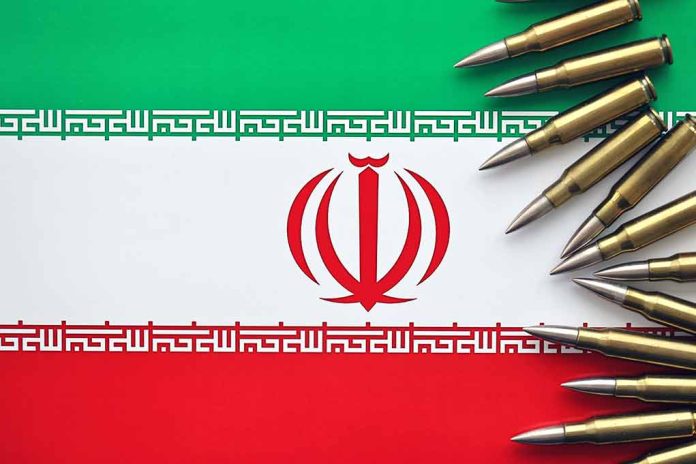
In the heart of the Middle East, tumultuous events have forced Iran to grapple with significant military and strategic challenges amidst the ongoing Syrian conflict and its regional alliances.
At a Glance
- Iran’s military has been overstretched due to concentrated efforts in supporting Assad.
- The Syrian conflict exposes Iran’s capability weaknesses in multitasking regional disputes.
- Iran seeks assistance from Russia, though the potential of this alliance is uncertain.
- Public disapproval of Iran’s foreign policy decisions is mounting internally.
Iran’s Position Weakens in Syrian Conflict
Iran’s strategic involvement in Syria faces a critical test. The recent surge in Sunni rebel offensives has exposed loopholes in Iran’s military strategy, particularly its inability to manage multiple regional conflicts effectively. Iran’s substantial military support for Syrian President Bashar Assad has drawn critical resources away from other priorities.
Conflicting alliances exacerbate the situation; Iran has faced unfavorable terms in a cease-fire in Lebanon, revealing the strain on its military and political resources.
The Weight of Regional Alliances
In Iran’s quest for regional influence, reliance on allies like Hezbollah and the Houthis has been put to the test. These proxy forces share in executing Iran’s strategic objectives against Israel. Still, the situation necessitates broader, more direct action that Iran’s overstretched military struggles to deliver without further escalation risks.
“I can now confirm that we have concluded the Israeli response to Iran’s attacks against Israel. We conducted targeted and precise strikes on military targets in Iran — thwarting immediate threats to the State of Israel.”
Watch IDF Spokesperson RAdm. Daniel Hagari talk about the… pic.twitter.com/1OOss3etpV
— Israel Defense Forces (@IDF) October 26, 2024
Tentative Alliance with Russia
In a bid to stabilize its position, Iran has sought to strengthen its alliance with Russia. However, Russia’s involvement is more outwardly focused on Ukraine, leaving Syria, and consequently, Assad’s regime, increasingly vulnerable. The possibility of sanctions being lifted from Assad by the US and UAE if he distances from Iran further complicates the geopolitical scenario.
“Assad must understand – he is playing with fire,” Israeli Prime Minister Benjamin Netanyahu said.
Such complexity has not gone unnoticed. Middle East observers note Iran’s weakening influence and assert that missteps could result in broader strategic shifts, possibly risking a direct confrontation with Israel.
Internal Dissatisfaction with Foreign Policy
Domestically, Iran’s foreign policy is facing increasing criticism. There is growing public disapproval over the resources devoted to proxy wars instead of improving economic conditions within Iran itself. The focus on supporting militant groups at the expense of national welfare has not only strained Iran’s capabilities but also affected the regime’s standing among its citizens.
As regional and internal pressures converge, Iran’s capacity to stay the course in Syria without significant Russian aid or risking broader regional destabilization remains ambiguous, planting seeds of uncertainty in the already volatile Middle East landscape.





